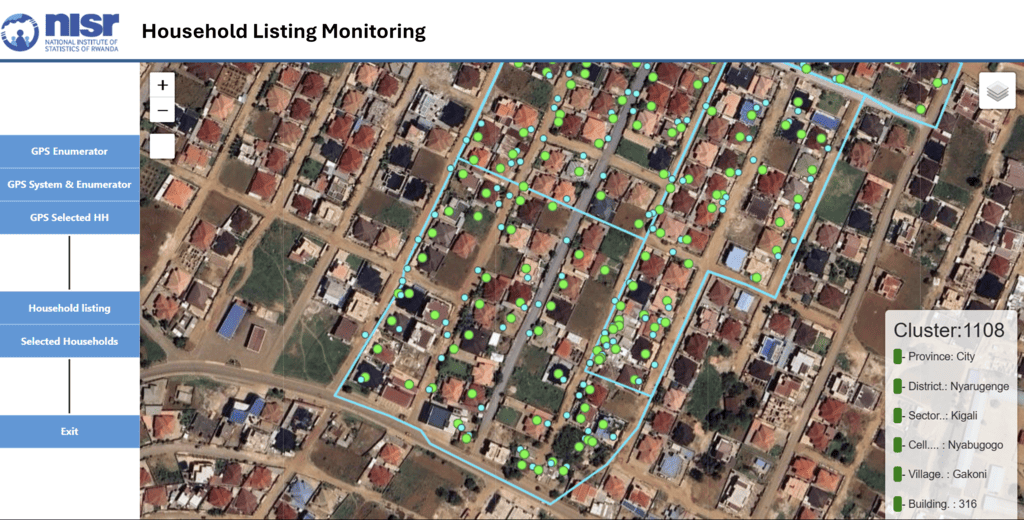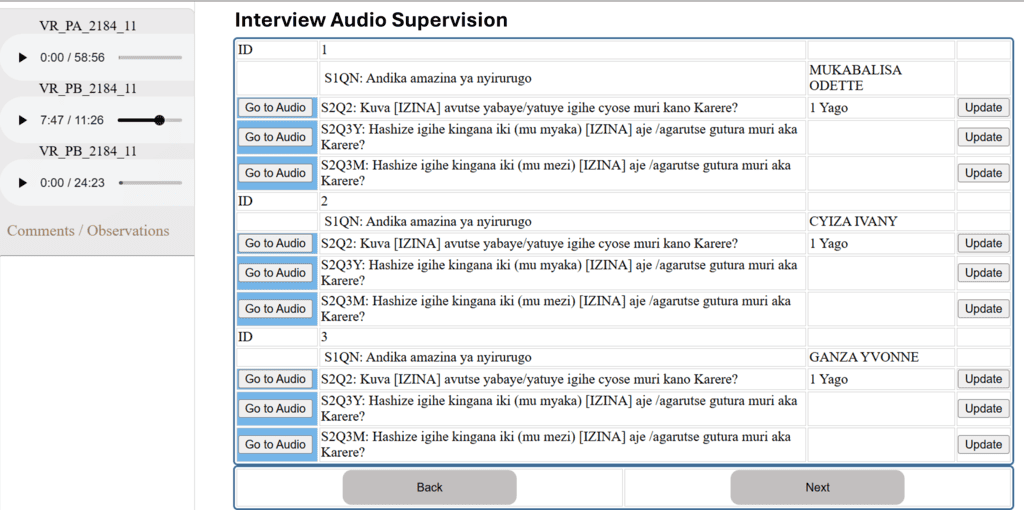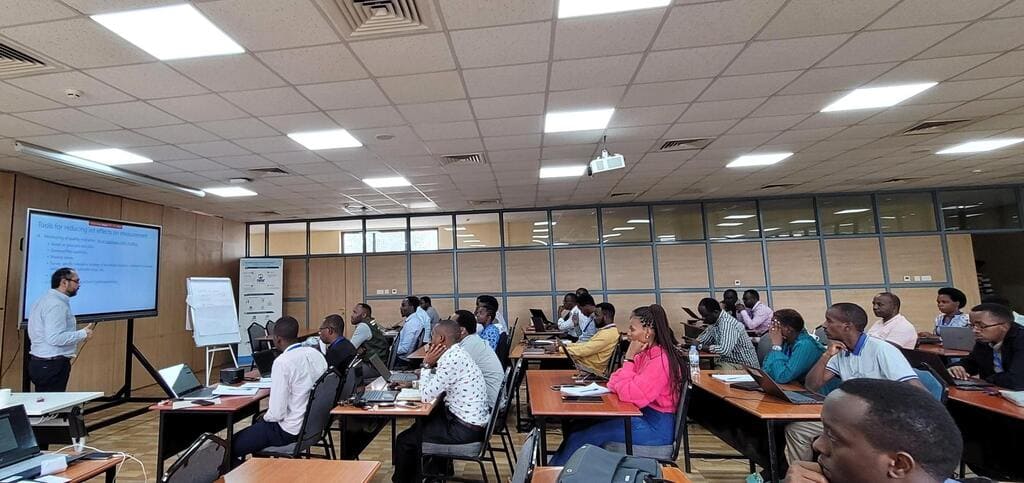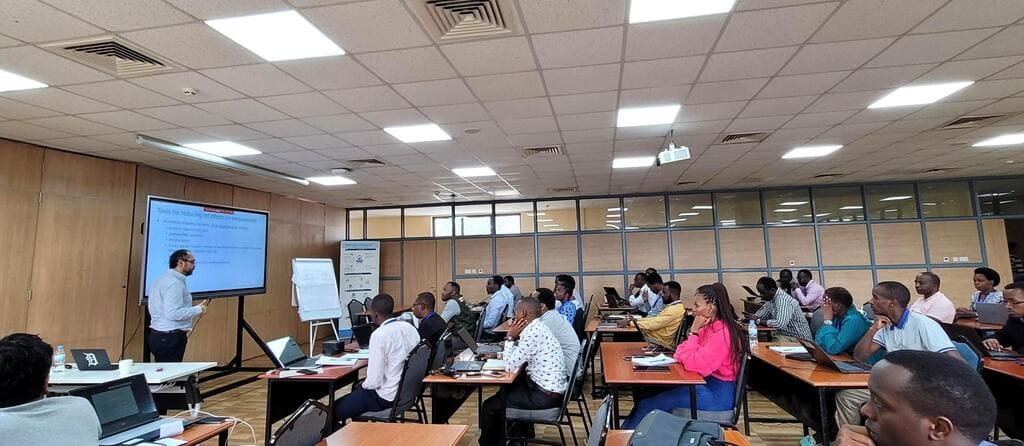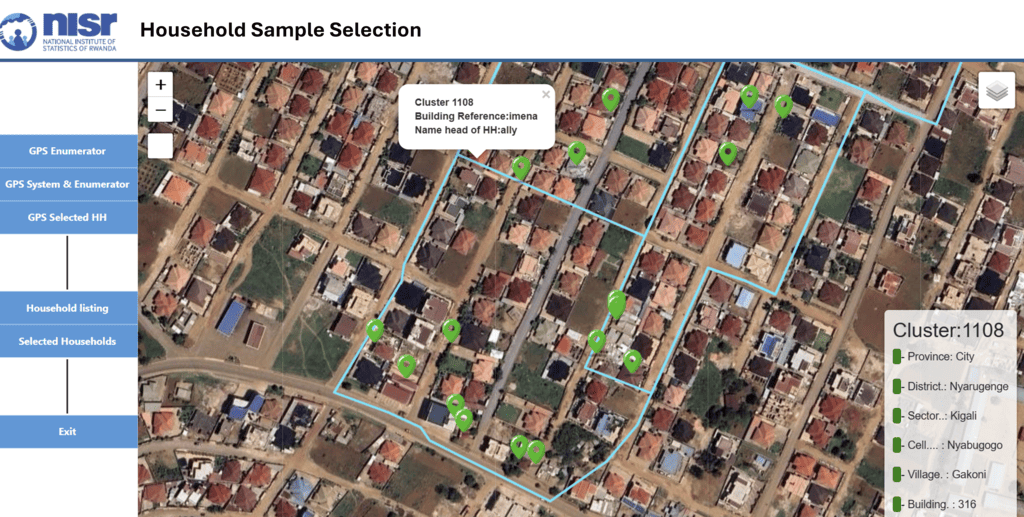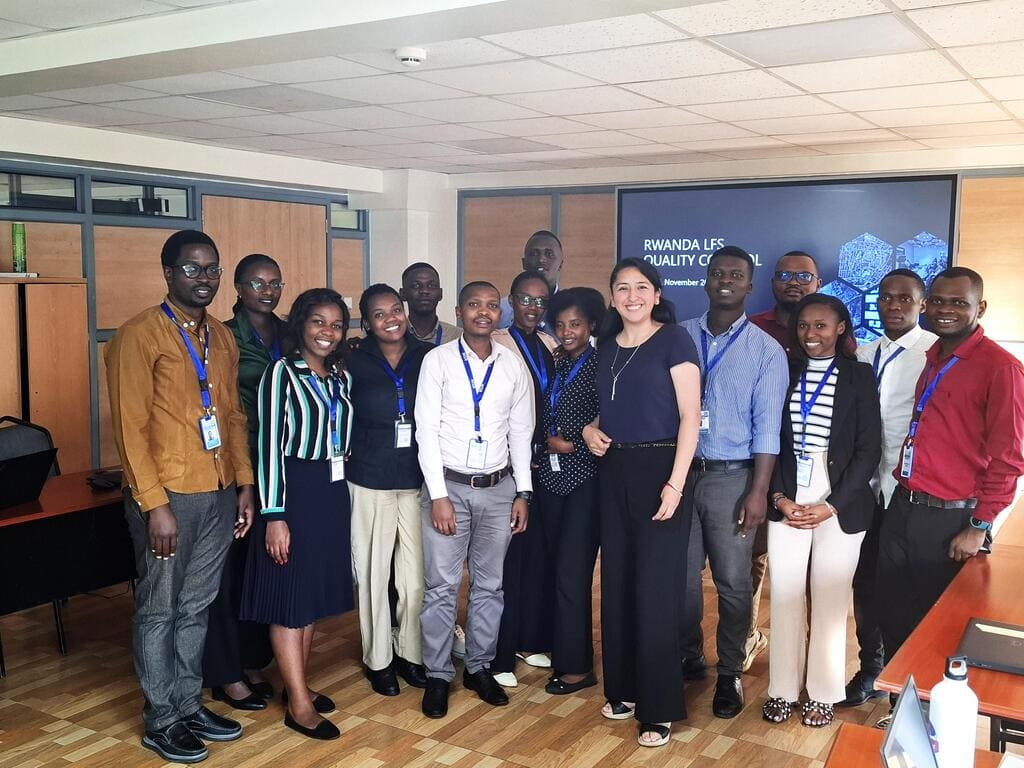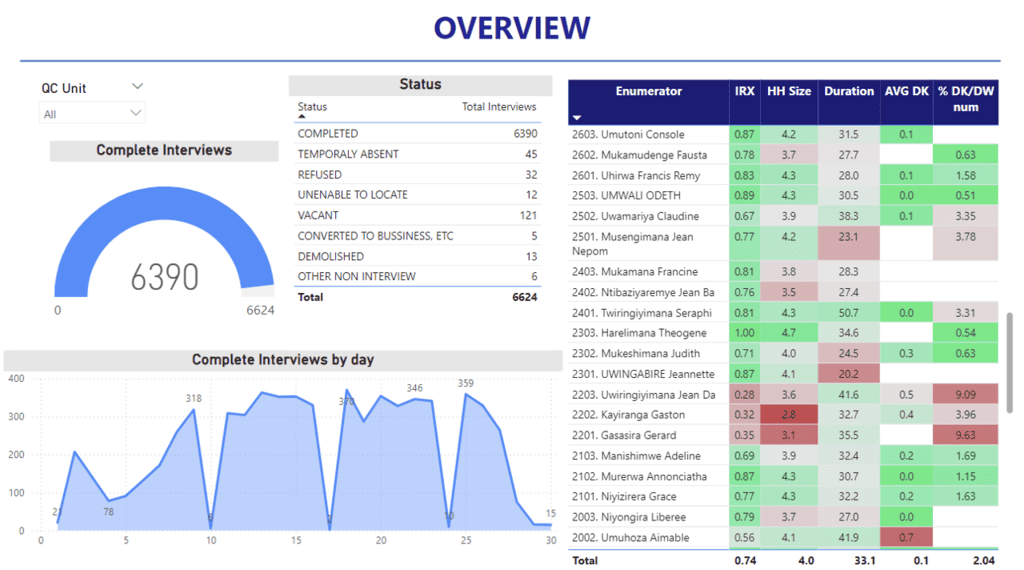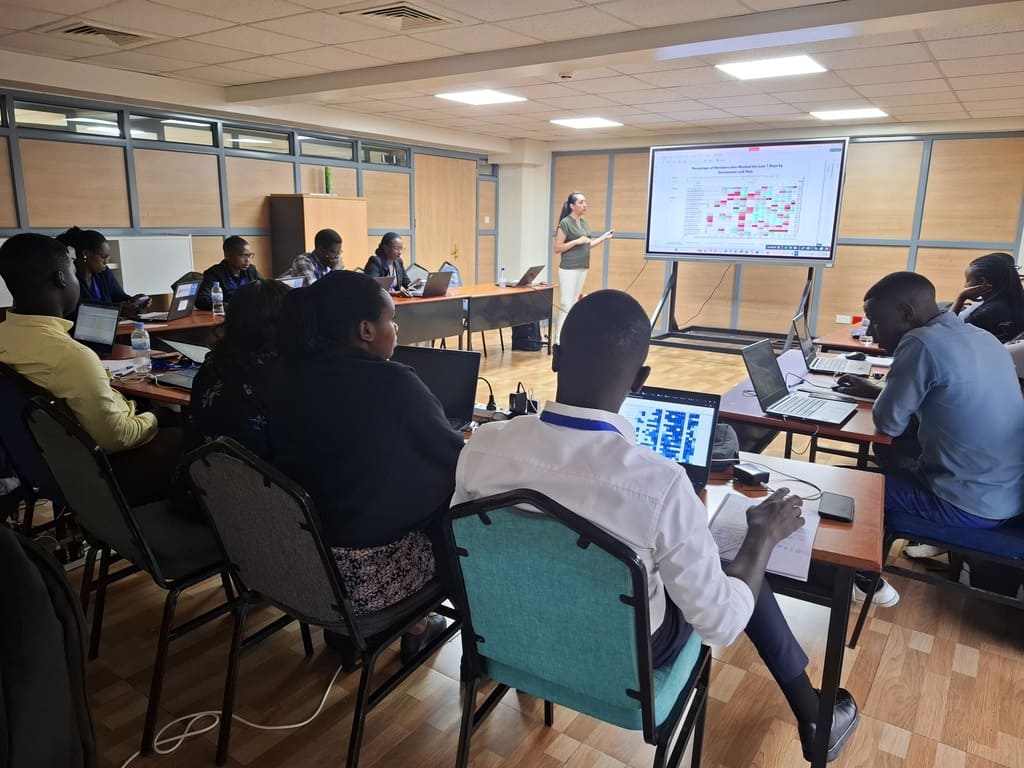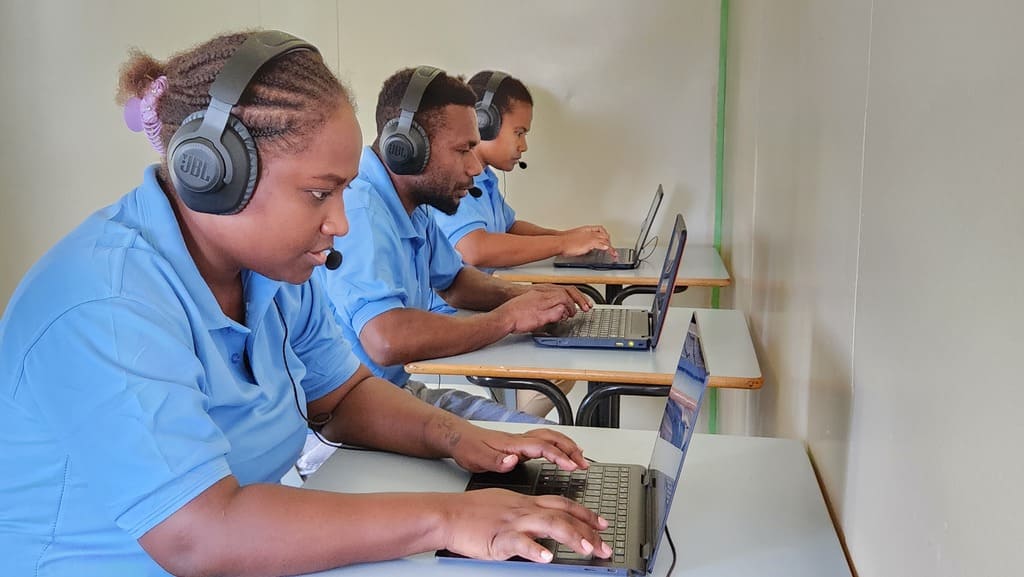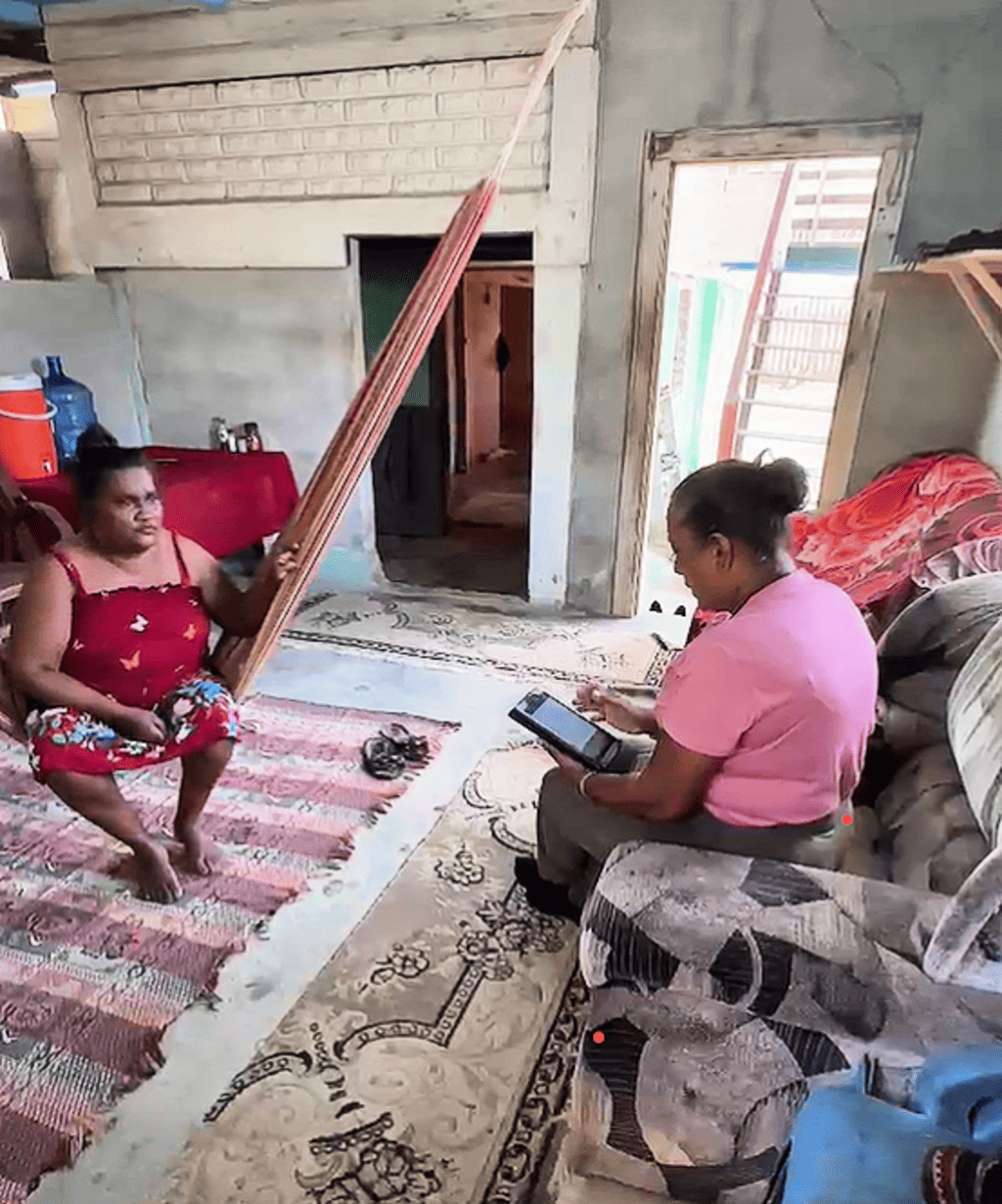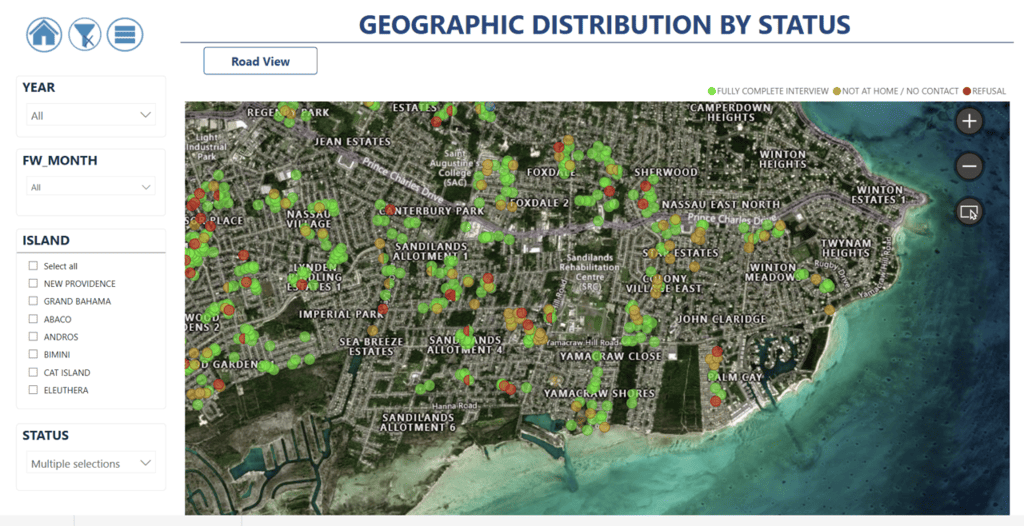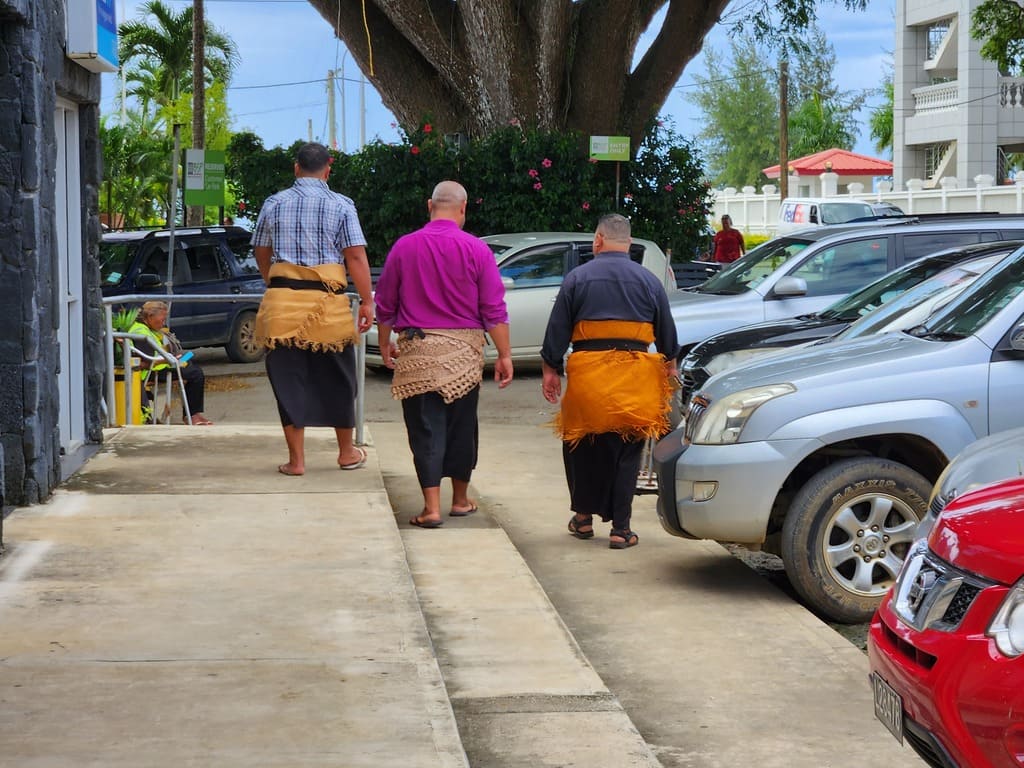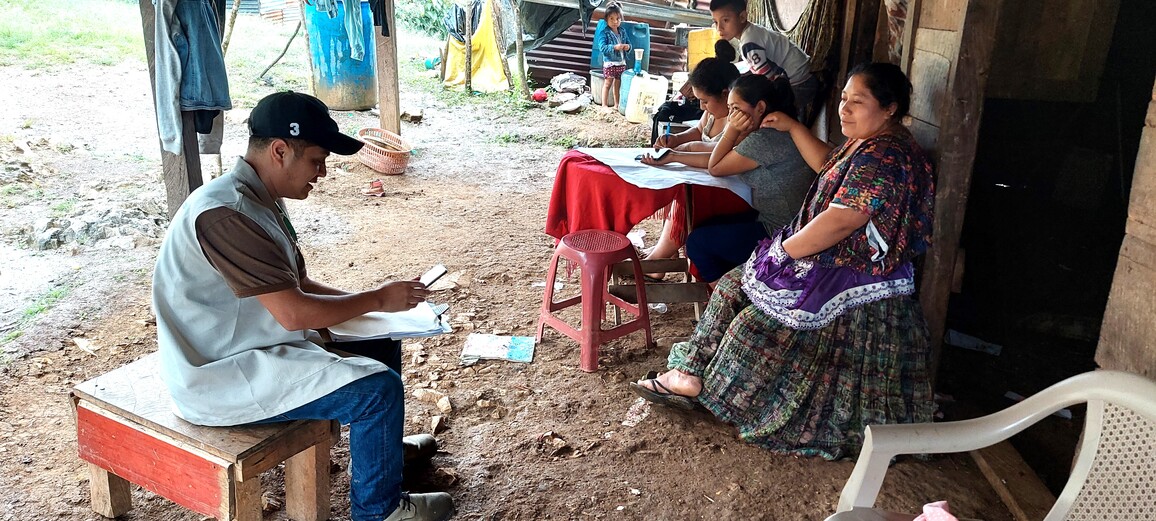Public trust is among the most valuable assets of any National Statistical Organization. The quality of the data produced and openness to the general public and economic players are crucial to achieving it. To ensure the reliability of the collected data, once the validity of the questionnaire and the quality of the sampling design have been assured, nonsampling errors produced during fieldwork must be minimized, such as listing undercoverage, nonresponse error and measurement errors.
In 2024, the National Institute of Statistics Rwanda (NISR) decided to modernize and enhance its fieldwork quality control processes in all of its surveys, three continuous high-frequency surveys (the Labor Force Survey, the Seasonal Agricultural Survey, and the Integrated Business Survey) and a large set of standalone surveys. To this end, Parstats installed its survey Integrated Management & Quality Control (IMQC) System to supervise the fieldwork execution and the quality of the collected data from the head office and in real time across the entire country.
The IMQC System includes a series of field-based tools, online monitoring and audio supervision platforms, and an online dashboard for visualizing progress and quality indicators overall and by the interviewer. The System runs throughout both the listing and interviewing phases, relying heavily on IT and GIS tools.
The project involved designing, adapting and installing the IMQC System’s IT components on NISR servers, training NISR IT staff, building a Survey Quality Control Unit and training its members on survey quality control methods and processes, and using the System IT tools.
The IMQC System was implemented in the Integrated Survey of Living Conditions and the Labor Force Survey in 2024 and will soon be extended to all other NISR survey projects.



